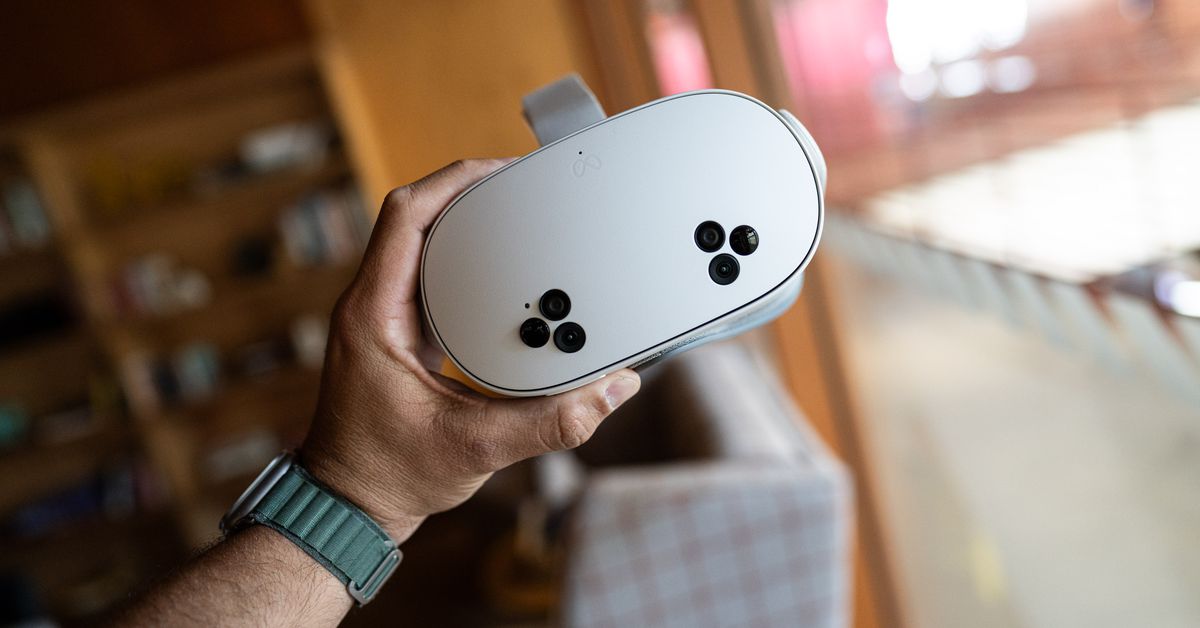Meta has a bunch of new hardware and AI news coming out of its Meta Connect event today, including a new Quest 3S VR headset, an expansion of Meta AI features, a new Llama model, and a first look at the new Orion augmented reality glasses. CEO Mark Zuckerberg took the stage on Wednesday with a new style and demonstrated new features including live translation between English and Spanish.
Here’s everything announced at Meta Connect:
Photo by Vjeran Pavic / The Verge
Meta has revealed its Orion augmented reality glasses, and they look almost like a trendy pair of frames you could pick up without all the tech inside. Orion uses Micro LED projectors inside the frame and beams images in front of your eyes via waveguides in the lenses. Orion has the same kinds of generative AI capabilities as the current Ray-Ban smart glasses — but adds a visual element to make it more helpful, like adding labels on top of ingredients you’re looking at on a table.
The glasses pair with a wireless compute puck and a “neural wristband” you wear on your arm that responds to gestures like punches. Orion isn’t quite ready as a product, though, so it isn’t going on sale.
Photo by Vjeran Pavic / The Verge
Meta’s latest VR headset is the Quest 3S, and it’s launching at the Quest 2’s original starting price of $299.99. The new headset has many of the same features as the more expensive Quest 3, including the same Snapdragon XR2 Gen 2 chip, and uses the same Touch Plus controllers. The lower price point is possible thanks to the Quest 3S’s lack of depth sensor, lower resolution screens, narrower field of view, and less compact package than the 3. With the 3S now in place, Meta is simplifying its VR lineup by discontinuing the Quest 2 and Quest Pro.
Photo by Vjeran Pavic / The Verge
Meta’s very cool Ray-Ban smart glasses are getting new software updates that adds a Reminders feature that can help you keep track of your day like remembering your grocery list. There are also improvements to Meta AI responsiveness, and the company is working on real-time speech translation. On the hardware front, Meta is launching new styles like a transparent frame and a new range of transition lenses.
Soon, your Facebook and Instagram feeds will include Meta AI-generated content “based on your interests or current trends” in a section called “Imagined for you.” It can incorporate your face into made-up scenarios like “an enchanted realm,” and you can do things like imagine yourself as a video game character or astronaut. The feature is a test for now.
Meta is continuing its venture to make celeb chatbots after shutting down its alternate persona feature on Instagram, which had weird options like Tom Brady playing as “Bru.” Now, Meta is connecting new celebrities with AI versions of themselves on Meta AI, including Awkwafina, John Cena, Keegan-Michael Key, Kristen Bell, and Dame Judi Dench. You can get access to these Meta AI voices on Instagram, WhatsApp, and Facebook in the US.
Illustration by Nick Barclay / The Verge
Meta has a new Llama model with one key update: the ability to process visuals. This is something competitors have had for the past year, so it’s an important step forward for Meta’s model. The new version also comes in smaller packages designed for mobile.

